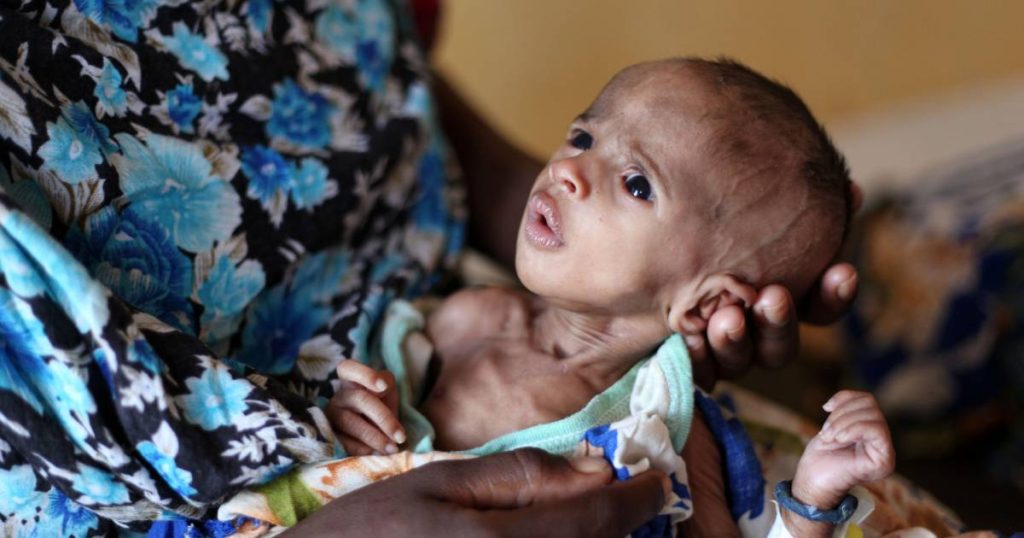The number of people suffering from hunger in East African countries such as Ethiopia, Kenya and Somalia has doubled compared to last year. UN figures indicate that 10.2 million people were hungry in May and June 2021, and today there are more than 23 million. “National and global responses are too slow and largely limited,” Oxfam and Save the Children noted in a new report released on Wednesday. “Hunger is a political failure,” said Gabriella Bucher, executive director of Oxfam International.
The two NGOs estimate that “perhaps every 48 seconds” someone dies of starvation in those three countries. “Despite many warning signs in recent years, world leaders have responded too late and too little — leaving millions of people facing catastrophic starvation,” Bucher said.
The rapidly increasing number of people going hungry is linked to droughts caused by climate change: The Horn of Africa’s population is experiencing its worst drought in 40 years, even though the region is responsible for only 0.1 percent of global carbon dioxide emissions.
This drought is exacerbated by the conflict. On top of this came the economic fallout from the pandemic, which “wiped people’s last ability to survive.” The final ingredient in this cocktail is the war in Ukraine, which has driven food prices to all-time highs.
People are starving not because the world has no food or money, but because of a blatant lack of political courage.
Food prices are on the rise
The average cost of a “food basket” across East Africa was 23 percent higher in February compared to the previous year. In Somalia and Ethiopia, the cost of food parcels in February was 36 and 66 percent higher, respectively, than in February 2021. However, enough food is being produced worldwide to feed everyone.
Despite the high needs, almost no resources were made available, they deplored Oxfam and Save the Children. Of the $4.4 billion (€4.2 million only) UN appeal for Ethiopia, Kenya and Somalia, only 2%, or $93 million (€88.2 million), is currently funded. “People are starving not because the world has no food or money, but because of an appalling lack of political courage,” Bucher said. “Countries can mobilize resources to prevent human suffering – but only if they choose to.”
Both aid agencies refer to the Group of Seven and other rich nations, which are “returning their promised aid to weak countries and pushing them to the brink of debt bankruptcy.” But the governments of the affected countries are also not excluded: they reacted very slowly and often refused to acknowledge the scale of the crisis. They also invest very little in agriculture or social security systems.
Read also:
Unlimited free access to Showbytes? And that can!
Sign in or create an account and never miss a thing from the stars.

“Creator. Award-winning problem solver. Music evangelist. Incurable introvert.”







More Stories
British military spy satellite launched – Business AM
Alarming decline in the Caspian Sea
Lithuania begins construction of military base for German forces